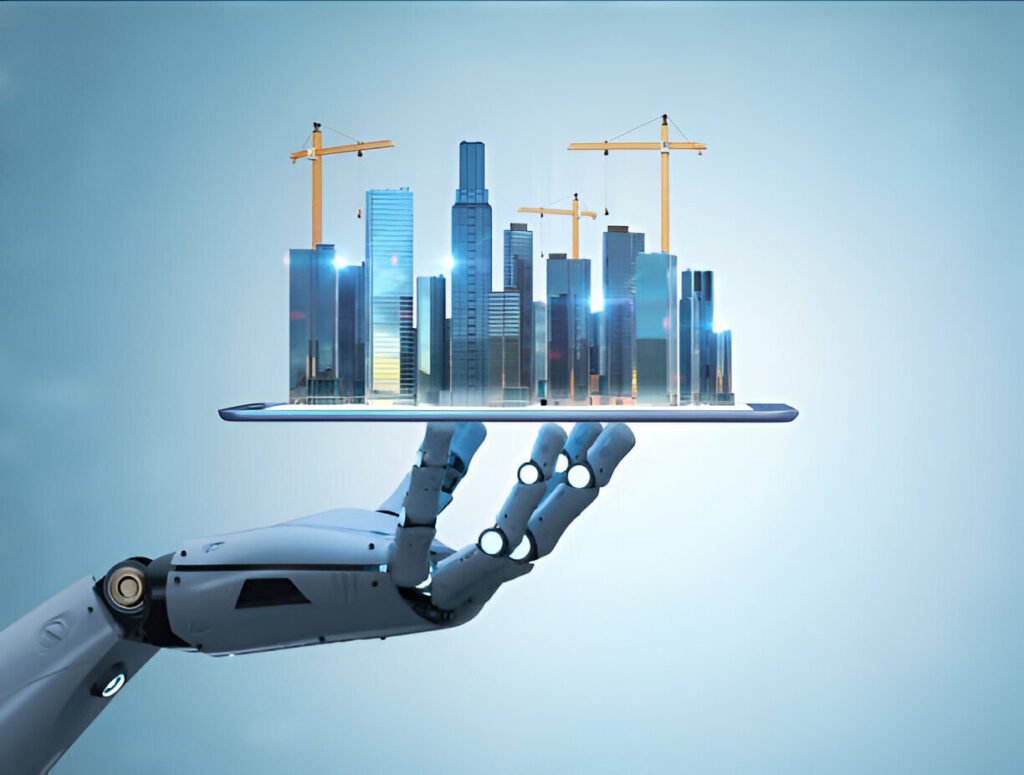
AI technologies are revolutionizing the construction industry, offering new ways to streamline processes, enhance efficiency, and make informed, data-driven decisions. As projects grow in complexity, construction professionals are increasingly turning to AI-powered tools to optimize every phase from planning to completion. This blog explores the best AI tools reshaping the construction landscape and their impact on project management.
The Role of AI in Construction Projects
AI brings unprecedented advantages to project planning, execution, and management. By analyzing vast amounts of data, AI helps construction professionals make more informed decisions, predict potential issues, and optimize resource allocation. These capabilities enhance project management efficiency, enabling more accurate scheduling, budgeting, and risk assessment. AI tools are becoming essential for managing the complexities of modern construction projects, from small renovations to large infrastructure developments.
AI’s impact on construction sites is especially significant. Advanced algorithms process data from sensors, drones, and wearable devices, providing real-time insights into project progress and site conditions. This constant data flow allows project managers to make quick, informed decisions, addressing issues promptly and keeping projects on track. AI-enhanced safety systems identify potential hazards, monitor worker behavior, and suggest preventive measures, greatly improving site safety and reducing accidents.
AI also transforms the entire construction process, from initial design to final inspection. During planning, AI helps create optimized designs that consider energy efficiency, material usage, and environmental impact. During construction, AI-powered robotics and automation streamline labor-intensive tasks, boosting productivity and ensuring quality. Post-construction, AI continues to play a vital role in building management and maintenance, predicting necessary repairs and optimizing energy consumption.
Top 5 AI Tools for the Construction Industry
1. OpenSpace
OpenSpace is a leading AI-powered reality capture and analytics platform that revolutionizes site documentation and analysis. By attaching a 360-degree camera to a hardhat and walking the site, OpenSpace automatically captures comprehensive visual records of the entire project. Its computer vision technology maps captured images to project plans, creating a fully navigable digital twin of the construction site.
Key Features:
- Automated Site Capture: AI maps 360-degree images to project plans, saving time and effort.
- Immersive Visual Documentation: Provides a 360-degree view accessible from anywhere.
- BIM Compare: Compares captured reality with BIM models to track progress and identify discrepancies.
- Field Notes: Allows team members to add notes and annotations directly to images.
- Analytics and Insights: Offers valuable data on construction progress for informed decision-making.
2. Procore
Procore is a comprehensive construction management software platform that connects all project stakeholders with industry-specific solutions. It enhances productivity, reduces rework and delays, improves safety, and ensures financial transparency.
Key Features:
- Project Management: Centralizes document storage, progress tracking, and communication.
- Quality and Safety: Manages inspections, incidents, and daily logs to improve outcomes.
- Financial Management: Provides real-time visibility into budgets, forecasts, and invoices.
- Mobile Functionality: Supports field teams with on-the-go access to project information.
- App Marketplace and Integrations: Offers over 300 third-party integrations for customized workflows.
3. ALICE Technologies
ALICE Technologies offers the first AI-powered construction optioneering platform, enabling contractors to plan, bid, and build more effectively. Using generative algorithms, ALICE rapidly generates and evaluates millions of construction schedule options.
Key Features:
- Generative Scheduling: Automatically creates optimal schedules based on project goals.
- Scenario Analysis: Explores “what-if” scenarios to visualize the impact of changes.
- BIM Integration: Integrates with BIM tools for 4D simulations and visual plans.
- Resource Optimization: Allocates labor, equipment, and materials efficiently.
- Collaboration and Reporting: Facilitates stakeholder collaboration with shared access and customizable reports.
4. Doxel
Doxel uses AI-powered autonomous devices like robots and drones to track construction progress and provide analytics. Its deep learning algorithms compare site conditions to BIM models and schedules to identify discrepancies and potential issues.
Key Features:
- Automated Progress Tracking: Captures daily site data for comprehensive progress views.
- BIM-Based Analytics: Compares actual conditions to BIM models across various stages.
- Predictive Insights: Forecasts project completion and flags potential delays.
- Productivity Metrics: Tracks production rates and labor productivity for optimization.
- Integration and Collaboration: Centralizes data access and enhances team collaboration.
5. Buildots
Buildots leverages AI and 360-degree cameras to capture and analyze site data daily, offering real-time insights into construction progress. Its AI algorithms compare progress to BIM models and schedules to identify discrepancies and potential issues.
Key Features:
- Automated Progress Tracking: Provides accurate, real-time views of construction progress.
- BIM Integration: Identifies discrepancies and issues across various stages.
- Predictive Analytics: Predicts delays and provides recommendations to mitigate them.
- Productivity Insights: Offers detailed analytics on production rates and performance trends.
- Collaboration Tools: Centralizes data access for effective stakeholder communication.
The Future of Construction
AI tools are revolutionizing construction by providing unprecedented efficiency, accuracy, and insights. From automated progress tracking and generative scheduling to predictive analytics and immersive visual documentation, these AI-powered solutions address long-standing challenges in construction project management. Embracing these technologies can significantly improve project outcomes, reduce risks, and enhance competitiveness in an increasingly digital landscape. As AI evolves, we can expect even more innovative solutions to further transform construction planning, execution, and management.
FAQ
What are the best AI tools for construction project management? Top AI tools include OpenSpace, Procore, ALICE Technologies, Doxel, and Buildots, enhancing efficiency and decision-making through real-time progress tracking and data analytics.
How does artificial intelligence improve the construction process? AI automates tasks, optimizes resource allocation, enhances site safety, and facilitates accurate planning and scheduling.
Can AI help with data-driven decision-making in construction projects? Yes, AI analyzes vast amounts of project data to provide insights, enabling informed decision-making throughout the project lifecycle.
How does AI technology enhance safety on construction sites? AI tools identify potential hazards, monitor worker behavior, and suggest preventive measures, significantly improving site safety.
What role does AI play in construction project planning? AI assists in creating optimized designs, predicting issues, estimating costs accurately, and developing efficient construction schedules.
By integrating these cutting-edge AI tools, construction professionals can navigate the complexities of modern projects with greater precision and confidence, ensuring successful outcomes and sustainable growth in the industry.

